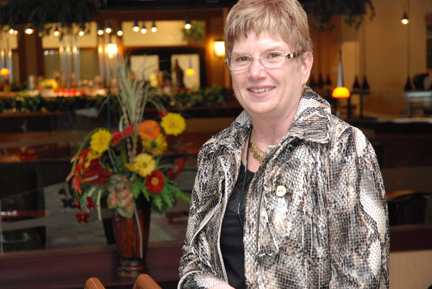
Dr. Fran Racher

Dr. Fran Racher believes that when it comes to couples who are affected by dementia, we need to look at the situation as experienced by the couple, which is much more than just the person who is diagnosed.
“It’s my philosophy that we need support couples. When it is their choice, we need to work to keep couples together,” she says. “We are not always meeting the needs of everybody who is involved.”
Dr. Racher would like to see our society move towards helping couples face dementia together.
“Some couples face exhaustion,” she explains. “It can be overwhelming and they aren’t always able to keep up.”
When a couple is dedicated, the partner who is not diagnosed by dementia often becomes more of a caregiver than a partner.
“The caregiver carries a heavy load, trying to keep up with the responsibilities, which often times, are more than their fair share,” says Dr. Racher.
The partners of those affected by a disease like Alzheimer’s are sometimes overlooked until they are in distress and overwhelmed.
“These partners have been one unit for so long and then when one is diagnosed with Alzheimer’s the person diagnosed becomes the focus. Within the health care system they are considered as individual units. Sometimes we lose sight that this is a couple being affected. We need to support this couplehood.”
Dr. Racher works with older couples, trying to learn about their experiences, their needs, to find out what works for them and what doesn’t.
“I look at what is happening in their lives? What are their strengths? Their weaknesses? How does one of them being diagnosed with dementia have an impact on the couple relationship? How does it change their decision making process?”
Dr. Racher says we need to understand how couples meet their challenges. “We need to help them to be more successful in their efforts to stick together and continue their lives as a couple, when that is the choice they want to make.”
Dr. Racher thinks it’s important to see couples treated as one unit. Respite work helps but it sometimes isn’t enough. “Often times when the caregiving partner gets a break, he or she spends the time catching up on the everyday needs, paying the bills, running errands. They don’t really get a break,” she explains.
“We need to change and adapt our services and programs so that those who are affected are better helped served. We need to recognize the couplehood and meet the needs of the individuals involved as well as the needs of the couple as a unit.”



